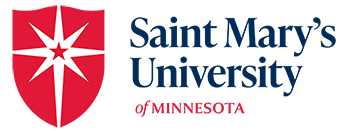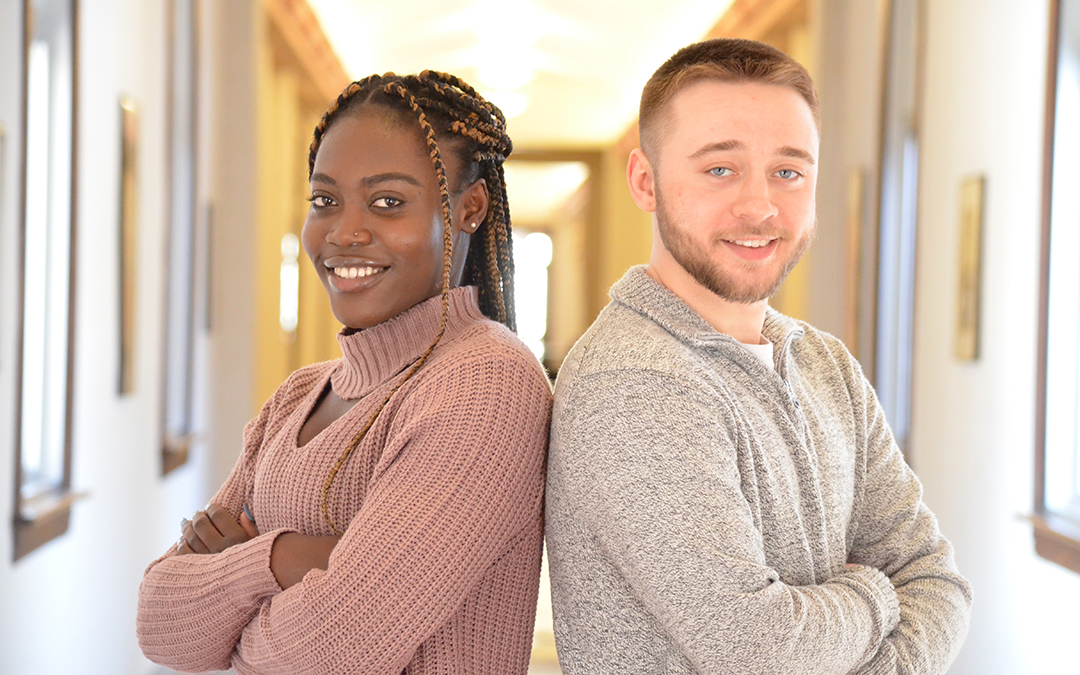Portia Mensah ’19 spent a semester working alongside teens in an urban school in the Twin Cities and literally walked in the footsteps of a homeless person.
Tyler Aliperto ’19 worked for a political organization which focuses on pending elections and educating others about the candidate’s stances on gender, economic justice, and social justice.
Mensah and Aliperto are two of a growing number of young people with a desire to leave the world a better place — a desire to make a difference. Their recent internships, both completed with the Higher Education Consortium for Urban Affairs (HECUA) Study-USA program, fueled this passion.
Mensah, a human services-health major from Bloomington, Minn., dreams of being a social worker who works for a non-profit or after-school program with young adults and teens.
Aliperto, a senior journalism major from St. Paul, Minn., also wants to work with youth. By becoming an educator in the schools he grew up in, he hopes to be an advocate for his students as well as for teachers.
HECUA’s Study-USA program structure includes seminar-style discussions mixed with field visits and guest speakers. By participants’ second week, they are placed at internship sites where they begin working 20 hours per week. Each Study-USA program offers a different theme and experience.
Both Saint Mary’s seniors chose “Inequality in America,” through which students examined the growing gap between rich and poor in the United States as well as gained concrete change-making skills through internships and discussions with effective activists.
Mensah said her semester-long experience this past fall focused on a number of critical areas including racism, housing, education, labor force, economics, and politics. “We all had our stories, and we were able to voice our opinions and listen to one another,” she said. “I was able to connect with others in the program and build resources and networking opportunities for the future.”
During her internship at Avalon School in St. Paul, she worked closely with high school students. In addition to supervising about 45 students in the classroom, she tutored in algebra, geometry, pre-calculus, and statistics; shadowed the math teachers; and helped students with homework. She also taught students valuable skills like how to apply for jobs and write papers and other independent living skills. A major project of hers included introducing students to a library in St. Paul where they could find resources for an upcoming project.
“Besides working in the population I want to work with, I was able to learn how the students cope in different environments,” she said. “They trusted me and felt safe, so we were able to talk and build a connection. And I used my skills from a past internship in which I worked with youth in a court-ordered program. I saw students who could potentially go that path, and I could redirect them and shift their focus. I also learned to break out of my confidence zone, to ask questions, and seek out help when needed.”
In spring of 2018, Aliperto changed his career path largely because of his HECUA experience and a meaningful learning unit that focused on education. “Inequality is replicated and reproduced throughout generations,” he said. “The education system plays a big role in that. Now I’m applying to colleges because I want to get my master’s degree in teaching. I would also want to support teachers’ unions and grow politically.”
Aliperto started a “take action squad” and held a few meetings at Saint Mary’s that brought in between 25-35 students each. The group was focused on various governors’ races but also on social justice at the university and the surrounding community.
He recommends that college students become more active in elections and not just at the presidential level. “If people our age were playing more of a role, it would contribute to us getting our issues more in the forefront so we could find solutions,” he said.
He and Mensah know it’s important to question authority and do the research before taking a stance. “I’ve learned that sometimes kids make decisions based on how they were raised, which can negatively or positively affect them,” Mensah said. “It’s up to us to research and question. It’s about us and how we want to make the change.”

